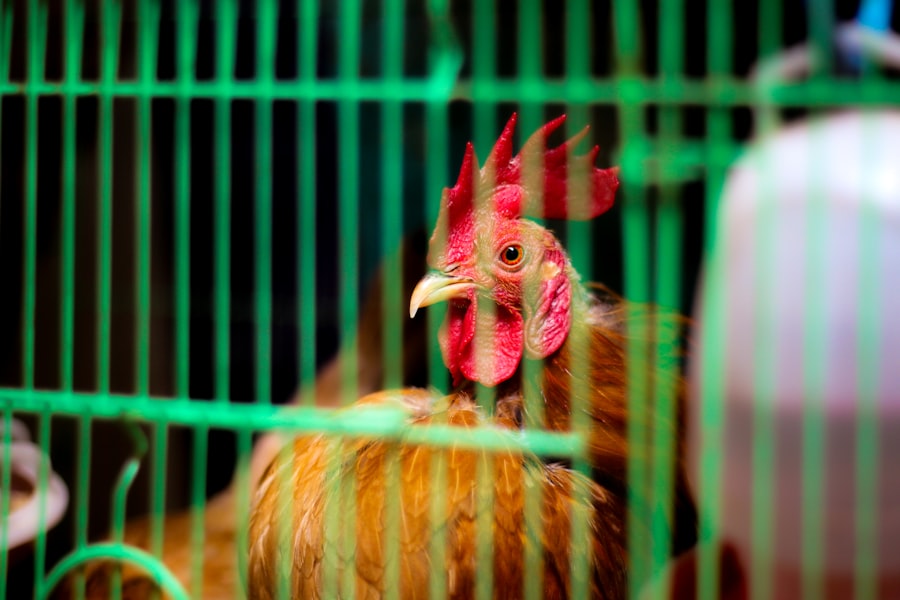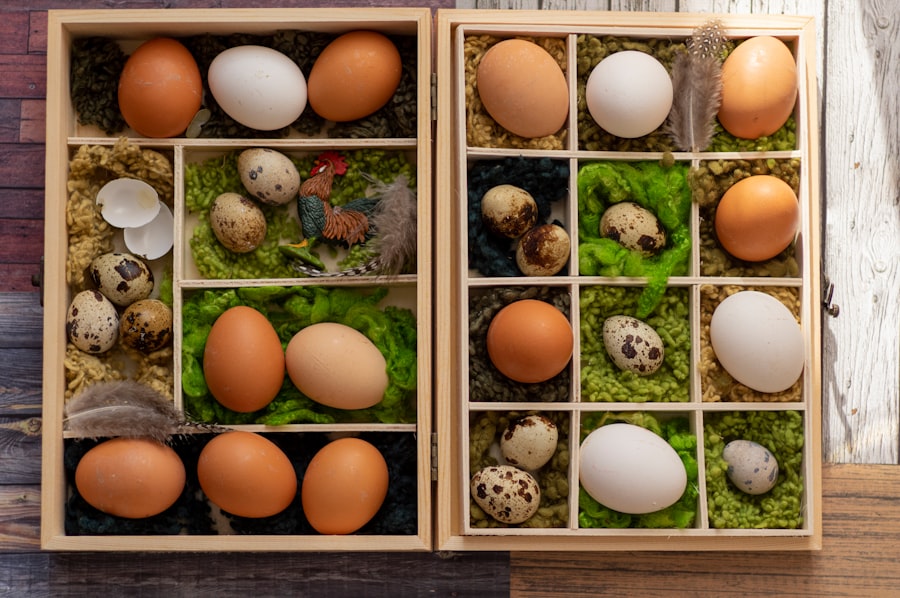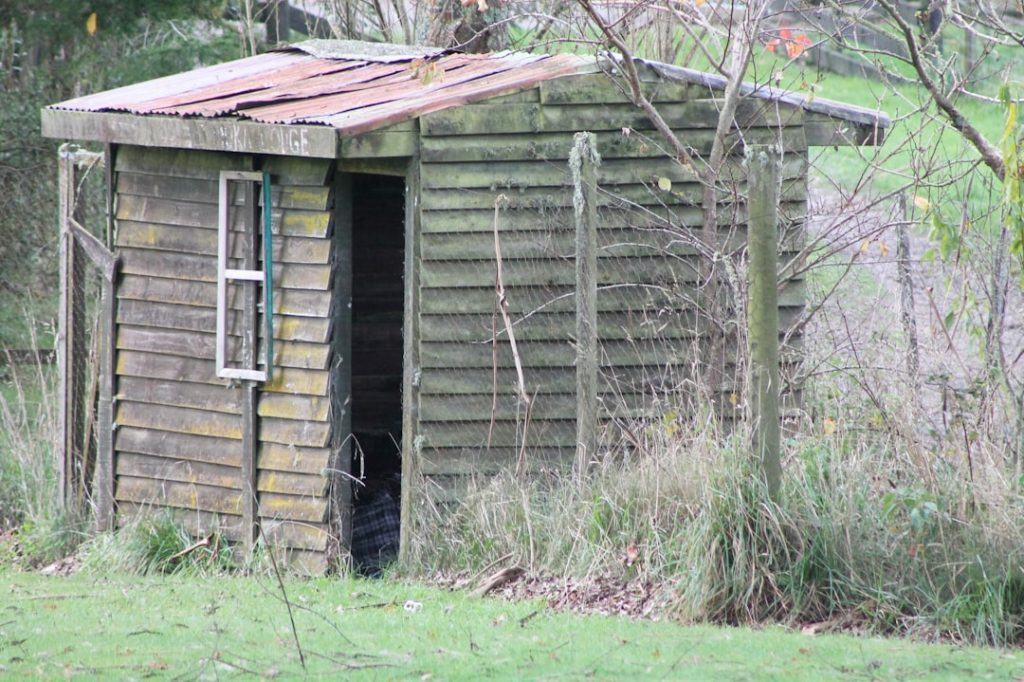Keeping chickens for composting offers numerous advantages for gardeners and the environment. Chickens generate substantial waste, including manure and bedding materials, which can be converted into nutrient-rich compost. This compost enhances soil fertility and structure, promoting healthier plant growth.
By utilizing chicken waste for composting, gardeners reduce organic waste in landfills, contributing to more sustainable waste management practices. Chicken-based composting can also lead to cost savings on fertilizers and soil amendments. The nutrient-dense compost produced by chickens serves as an effective alternative to expensive commercial fertilizers.
This approach not only reduces gardening expenses but also minimizes the use of synthetic chemicals, promoting a more organic gardening method. Beyond environmental and financial benefits, keeping chickens for composting provides an educational opportunity for both adults and children. It offers hands-on experience in nutrient recycling and sustainable waste management, fostering a deeper understanding of ecological processes and environmental stewardship.
Table of Contents
- 1 Setting Up a Chicken Coop for Composting
- 2 Choosing the Right Chicken Breeds for Composting
- 3 Managing Chicken Waste for Composting
- 4 Incorporating Chicken Manure into Compost
- 5 Using Chicken Bedding for Composting
- 6 Harvesting and Using Chicken Compost on Your Garden
- 7 FAQs
- 7.1 What are the benefits of keeping chickens and composting?
- 7.2 How do chickens help with composting?
- 7.3 What should be considered when keeping chickens for composting?
- 7.4 What are some common mistakes to avoid when keeping chickens and composting?
- 7.5 How can chicken manure be used in composting?
- 7.6 Are there any health or safety concerns when keeping chickens and composting?
Key Takeaways
- Keeping chickens for composting can help reduce waste and create nutrient-rich compost for your garden.
- Setting up a chicken coop for composting requires proper space, ventilation, and access to sunlight.
- Choosing the right chicken breeds for composting involves selecting breeds that are good foragers and produce a good amount of manure.
- Managing chicken waste for composting involves regular cleaning, proper storage, and monitoring moisture levels.
- Incorporating chicken manure into compost can help balance the carbon-to-nitrogen ratio and speed up the composting process.
- Using chicken bedding for composting can add carbon to the compost pile and create a balanced mix of materials.
- Harvesting and using chicken compost on your garden can improve soil fertility and promote healthy plant growth.
Setting Up a Chicken Coop for Composting
Coop Layout and Space
When setting up a chicken coop for composting, it’s essential to consider the design and layout of the coop to facilitate the collection and management of chicken waste. The coop should be spacious enough to accommodate the number of chickens you plan to keep, with separate areas for roosting, nesting, and feeding.
Composting Space and Materials
It’s also crucial to include a designated space for composting, such as a dedicated compost bin or pile, within or adjacent to the coop. This will make it easier to collect and manage the chicken waste for composting purposes. Additionally, using natural and non-toxic materials such as untreated wood, metal, or plastic in the construction of the coop will ensure that the coop is safe for both the chickens and the composting process.
Ventilation, Drainage, and Maintenance
Proper ventilation and drainage are vital for maintaining a healthy environment within the coop and preventing moisture buildup, which can lead to unpleasant odors and unsanitary conditions. Furthermore, incorporating a system for regularly cleaning and maintaining the coop will help ensure that the chicken waste is effectively managed and utilized for composting.
Choosing the Right Chicken Breeds for Composting

When choosing chicken breeds for composting, it’s important to consider their waste production, temperament, and suitability for confinement. Some chicken breeds are known for their high egg production but may produce less waste, while others are prolific waste producers but may not be as productive in terms of egg-laying. Additionally, certain breeds may be better suited for confinement in a coop or run, while others may thrive in free-range environments.
It’s important to select breeds that are well-suited to your specific needs and preferences for composting. In addition to waste production and confinement suitability, it’s also important to consider the temperament of the chicken breeds. Some breeds are known for being docile and easy to handle, making them ideal for managing and collecting waste for composting.
On the other hand, some breeds may be more aggressive or flighty, which can make handling and managing them more challenging. By choosing breeds with favorable temperaments, you can ensure a more pleasant and manageable experience when keeping chickens for composting. Ultimately, selecting the right chicken breeds for composting will depend on your specific goals, preferences, and the resources available for managing and caring for the chickens.
Managing Chicken Waste for Composting
Managing chicken waste for composting involves several key practices to ensure that the waste is effectively collected, processed, and utilized for creating high-quality compost. One important aspect of waste management is regular cleaning and maintenance of the chicken coop to prevent the buildup of waste and maintain a clean and healthy environment for the chickens. This includes removing soiled bedding, cleaning roosts and nesting boxes, and ensuring proper ventilation to minimize odors and moisture buildup.
Another important practice in managing chicken waste for composting is proper storage and containment of the waste materials. This may involve using dedicated compost bins or piles within or adjacent to the coop to collect and process the waste. It’s important to regularly turn and aerate the compost pile to promote decomposition and prevent odors.
Additionally, managing chicken waste for composting also involves monitoring the carbon-to-nitrogen ratio in the compost pile to ensure optimal conditions for decomposition and nutrient release.
Incorporating Chicken Manure into Compost
Incorporating chicken manure into compost is an effective way to harness its nutrient-rich properties and create high-quality compost for your garden. Chicken manure is rich in nitrogen, phosphorus, potassium, and other essential nutrients that are beneficial for plant growth and soil fertility. When properly composted, chicken manure can be transformed into a valuable soil amendment that improves soil structure, enhances water retention, and promotes healthy plant growth.
To incorporate chicken manure into compost, it’s important to balance its high nitrogen content with carbon-rich materials such as straw, leaves, or wood shavings. This helps maintain an optimal carbon-to-nitrogen ratio in the compost pile, promoting efficient decomposition and preventing odors. Regular turning and aerating of the compost pile will also help accelerate the decomposition process and ensure that the chicken manure is thoroughly mixed with other organic materials.
In addition to balancing carbon and nitrogen levels, it’s important to monitor the temperature and moisture levels in the compost pile to create ideal conditions for decomposition. Properly composted chicken manure should have a dark, crumbly texture with no recognizable odor, indicating that it is ready to be used as a nutrient-rich soil amendment in your garden.
Using Chicken Bedding for Composting

Creating a Balanced Compost Pile
Chicken bedding materials such as straw, hay, wood shavings, or shredded paper can be combined with other organic materials to create a balanced compost pile that is rich in nutrients and beneficial microorganisms. The bedding materials provide carbon-rich material that helps balance the high nitrogen content of chicken manure, promoting efficient decomposition and preventing odors.
Environmental Benefits and Soil Enrichment
In addition to providing carbon-rich material, using chicken bedding for composting also helps recycle organic materials that would otherwise end up in landfills. This contributes to a more sustainable and eco-friendly approach to waste management while creating a valuable resource for improving soil fertility and plant growth. By incorporating chicken bedding into your compost pile, you can create a nutrient-rich soil amendment that enhances soil structure, promotes beneficial microbial activity, and provides essential nutrients for healthy plant growth.
Effective Composting Techniques
To effectively use chicken bedding for composting, it’s important to regularly turn and aerate the compost pile to promote decomposition and prevent odors. Monitoring the temperature and moisture levels in the compost pile will also help create optimal conditions for decomposition, ensuring that the bedding materials are effectively broken down into a valuable soil amendment for your garden.
Harvesting and Using Chicken Compost on Your Garden
Harvesting and using chicken compost on your garden is a rewarding culmination of your efforts in managing chicken waste for composting. Once the compost has reached a dark, crumbly texture with no recognizable odor, it is ready to be used as a nutrient-rich soil amendment in your garden. The finished compost can be applied directly to garden beds as a top dressing or incorporated into the soil before planting to improve soil fertility and structure.
Using chicken compost on your garden provides numerous benefits for plant growth and overall soil health. The nutrient-rich properties of the compost provide essential elements such as nitrogen, phosphorus, potassium, and other micronutrients that promote healthy plant growth and development. Additionally, incorporating chicken compost into the soil helps improve soil structure, enhance water retention, promote beneficial microbial activity, and suppress plant diseases.
In addition to its benefits for plant growth, using chicken compost on your garden also contributes to sustainable waste management practices by recycling organic materials from the coop into a valuable resource for improving soil fertility. By harnessing the nutrient-rich properties of chicken compost, you can reduce your reliance on synthetic fertilizers and promote a more natural and organic approach to gardening. Ultimately, harvesting and using chicken compost on your garden represents a holistic approach to sustainable gardening that benefits both your plants and the environment.
If you’re interested in keeping chickens and composting, you may want to check out this article on A-Frame Chicken Coop from Poultry Wizard. This article provides valuable information on how to build a functional and efficient coop for your chickens, which can also be a great source of compost for your garden. For more tips and resources on keeping chickens, visit Poultry Wizard.
FAQs
What are the benefits of keeping chickens and composting?
Keeping chickens can provide a sustainable source of fresh eggs, natural pest control, and fertilizer for your garden. Composting with chicken manure can enrich the soil and reduce waste.
How do chickens help with composting?
Chickens can help with composting by scratching and turning the compost pile, which helps aerate it and speed up the decomposition process. Their manure also adds valuable nutrients to the compost.
What should be considered when keeping chickens for composting?
When keeping chickens for composting, it’s important to provide them with a suitable coop and run, proper nutrition, and access to fresh water. Additionally, their manure should be added to the compost in appropriate amounts to avoid overloading it with nitrogen.
What are some common mistakes to avoid when keeping chickens and composting?
Common mistakes to avoid when keeping chickens and composting include not providing enough space for the chickens to roam and forage, using too much chicken manure in the compost, and not properly managing the compost pile to prevent odors and pests.
How can chicken manure be used in composting?
Chicken manure can be used in composting by adding it to the compost pile in appropriate amounts, along with other organic materials such as kitchen scraps, yard waste, and leaves. It should be mixed in and turned regularly to ensure proper decomposition.
Are there any health or safety concerns when keeping chickens and composting?
When keeping chickens and composting, it’s important to practice good hygiene and sanitation to reduce the risk of disease transmission. Proper handling and storage of chicken manure is also important to prevent contamination and odors.
Meet Walter, the feathered-friend fanatic of Florida! Nestled in the sunshine state, Walter struts through life with his feathered companions, clucking his way to happiness. With a coop that’s fancier than a five-star hotel, he’s the Don Juan of the chicken world. When he’s not teaching his hens to do the cha-cha, you’ll find him in a heated debate with his prized rooster, Sir Clucks-a-Lot. Walter’s poultry passion is no yolk; he’s the sunny-side-up guy you never knew you needed in your flock of friends!







